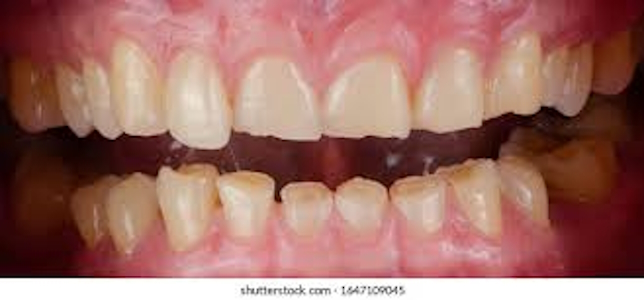
Family Dental Care

Family Dental Care

Have you ever woken up with a sore jaw or noticed that your teeth feel sensitive? You might be experiencing a condition known as bruxism. Bruxism is the medical term for teeth grinding or jaw clenching, and it can happen while you are awake or asleep. Many people don’t even realize they are doing it until signs of damage appear.
Bruxism involves the involuntary or habitual grinding of the teeth and clenching of the jaw muscles. It is more common than you might think, and while mild cases may not require treatment, frequent or severe bruxism can lead to problems with your teeth, jaw, and overall oral health.
There are two main types:
Awake bruxism: Conscious jaw clenching, often linked to stress, anxiety, or concentration.
Sleep bruxism: Grinding or clenching that happens during sleep, typically without the person being aware.
Several factors can contribute to bruxism, including:
Stress and anxiety: Emotional stress is one of the most common triggers.
Sleep disorders: Conditions like sleep apnea can increase the risk.
Bite problems: Misaligned teeth (malocclusion) may play a role.
Lifestyle habits: Smoking, excessive caffeine or alcohol consumption, and recreational drug use are linked to higher rates of bruxism.
Medical conditions and medications: Some neurological disorders and certain antidepressants can cause bruxism as a side effect.
You might not always be aware you’re grinding your teeth, especially if it happens during sleep. Here are some signs to watch for:
Jaw soreness or tightness
Tooth sensitivity or pain
Flattened, fractured, or chipped teeth
Headaches, particularly around the temples
Worn enamel, exposing deeper layers of the tooth
Disrupted sleep for you or your partner (due to the grinding sound)
Left untreated, bruxism can cause significant damage. It can wear down your teeth, leading to cavities, fractures, and even tooth loss. It can also strain the muscles and joints in your jaw, potentially leading to temporomandibular joint (TMJ) disorders.
Treatment depends on the cause and severity of your bruxism. Common options include:
Mouthguards: Custom-fitted nightguards protect your teeth from grinding damage during sleep.
Stress management: Relaxation techniques, therapy, and exercise can help reduce stress-related bruxism.
Dental correction: In some cases, adjusting the bite with orthodontics or dental restorations can help.
Behavioral therapies: Learning new habits to stop clenching during the day can be very effective.
Medication: In some instances, muscle relaxants or other medications may be prescribed.
If you suspect you grind your teeth, visiting your dentist is the first step. Meanwhile, you can:
Practice stress-reduction techniques like yoga or meditation.
Avoid caffeine and alcohol, especially in the evening.
Maintain good sleep hygiene to promote better rest.
Become more aware of jaw clenching during the day and gently position your tongue and teeth in a relaxed posture.
Bruxism is common, but it shouldn’t be ignored. With the right care and attention, you can protect your teeth, relieve discomfort, and prevent long-term damage. If you think you might be grinding your teeth, don’t hesitate to talk to your dentist — early intervention can make all the difference!